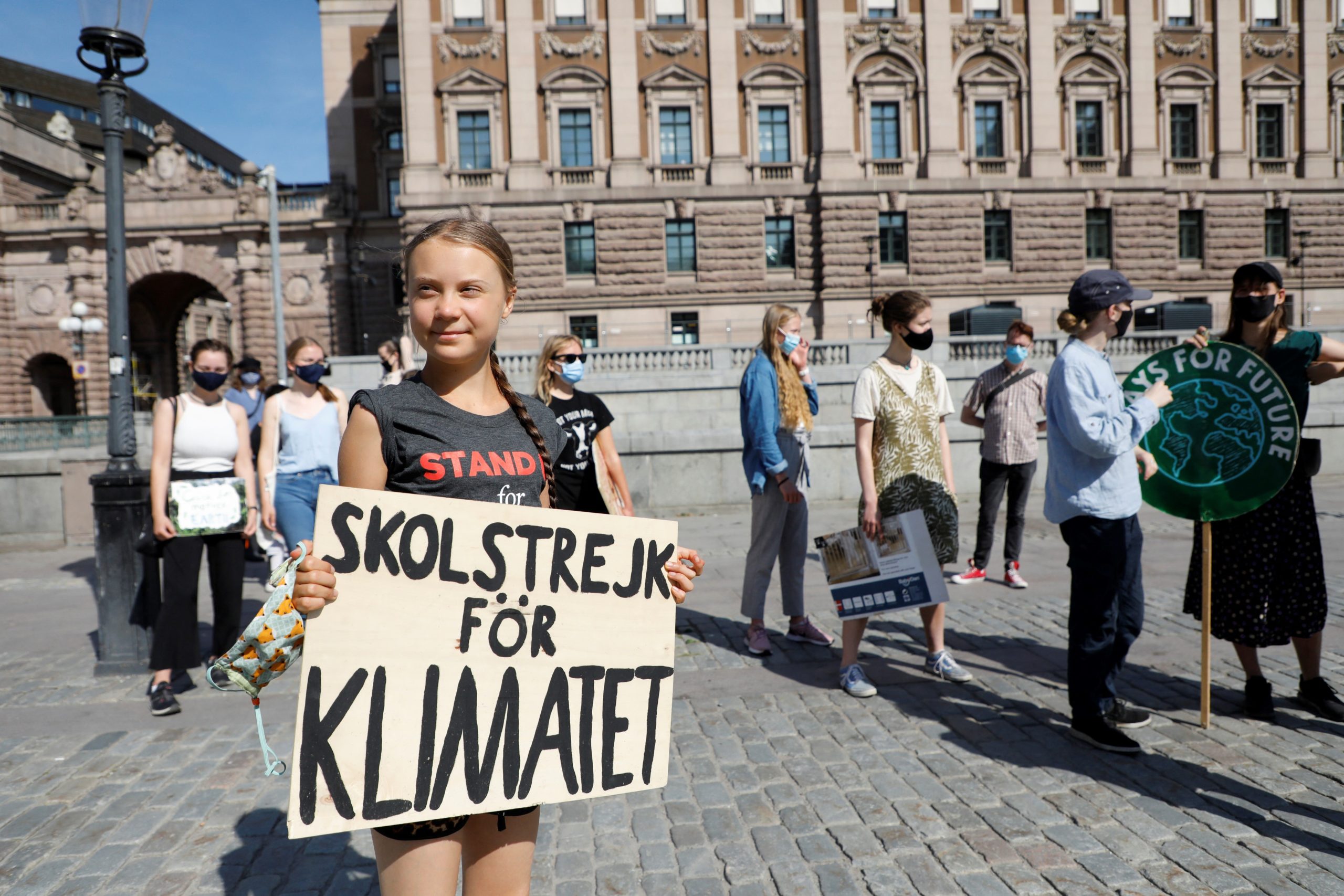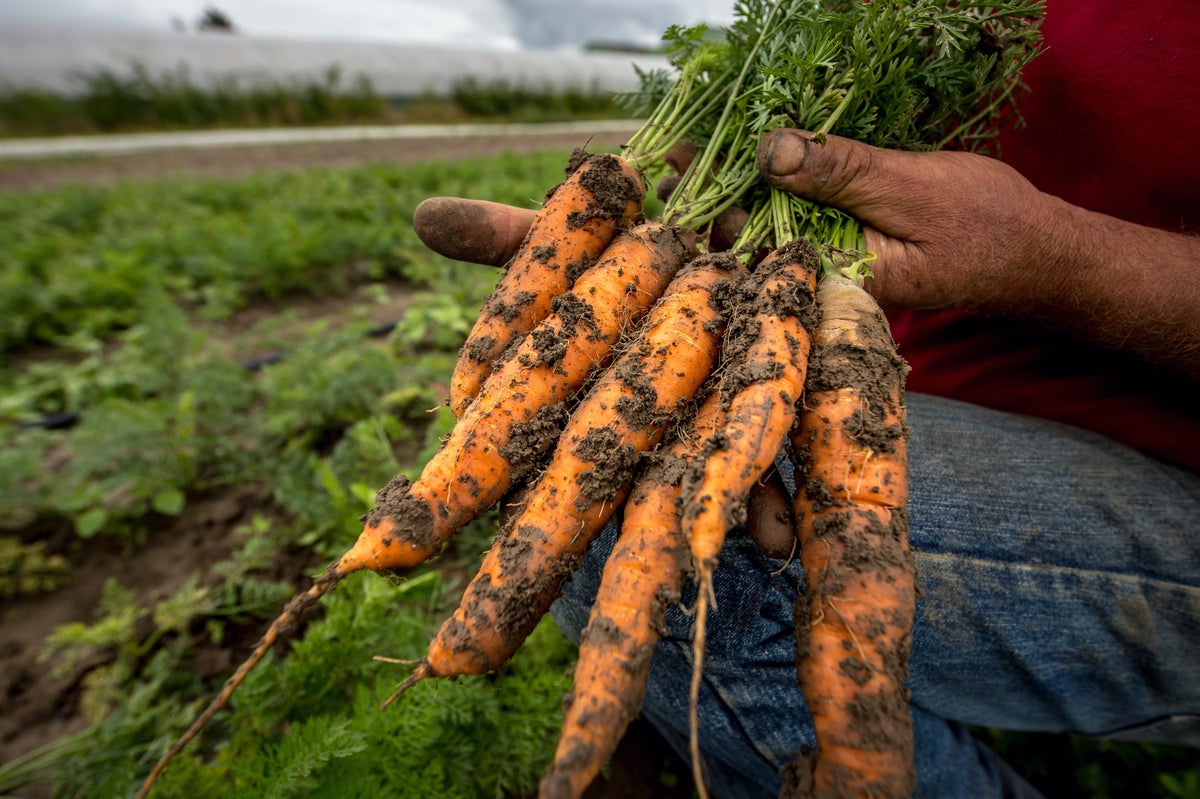Higher CO2 levels helping many plants thrive. Crop yields are up, yet no acknowledgement from the rabid climate fanatics.
The purveyors of climate doom will not tolerate the good news of our planet thriving because of modest warming and increasing atmospheric carbon dioxide. However, a recent scientific paper concludes that an optimistic vision for Earth and its inhabitants is nonetheless justified.
Widely accepted data show an overall greening of Earth resulting from a cycle of natural warming that began more than 300 years ago and from industrialization’s additions of CO2 that started in the 19th century and accelerated with vigorous economic activity following World War II.
The positive contribution of carbon dioxide to the human condition should be cause for celebration, but this is more than demonizers of the gas can abide. Right on cue, narrators of a planet supposedly overheating from carbon dioxide began sensationalizing research findings that increased plant volume results in lower concentrations of nutrients in food.
“The potential health consequences are large, given that there are already billions of people around the world who don’t get enough protein, vitamins or other nutrients in their daily diet,” concluded the The New York Times, a reliable promoter of apocalypse forever. Among others chiming in have been The Lancet, Harvard T.H. Chan School of Public Health and the National Institutes of Health.
Any deficiency of nutrients from the enhancement of plant growth by elevated carbon dioxide “are small, compared to the nutrient shortages that agriculture and livestock routinely face because of natural phenomena, such as severe soil fertility differences, nutrient dilution in plants due to rainfall or irrigation and even aging of crops,” says the paper.
And while there is evidence of marginal decreases in some nutrients, data also show that higher levels of CO2 “may enhance certain groups of health-promoting phytochemicals in food crops” that serve as antioxidants and anti-inflammatory compounds, says the paper, which lists seven authors and more than 100 references. The lead author is Albrecht Glatzle, a member of the Rural Association of Paraguay and a former international researcher of plant and animal nutrition.
____________________________
Having virtually no scientific basis, the “green” movement’s hostility to carbon dioxide seemingly ignores the gas’s critical role as a plant food. As the paper notes, “CO2 is the only source of the chemical element carbon for all life on Earth, be it for plants, animals or fungi and bacteria — through photosynthesis and food chains.”
The so-called greenhouse effect of carbon dioxide— perversely exaggerated to support climate fearmongering— is a life-saving temperature moderator that keeps Earth from freezing over.
More CO2 is good news. It’s not that complicated.

 dailycaller.com
dailycaller.com
The purveyors of climate doom will not tolerate the good news of our planet thriving because of modest warming and increasing atmospheric carbon dioxide. However, a recent scientific paper concludes that an optimistic vision for Earth and its inhabitants is nonetheless justified.
Widely accepted data show an overall greening of Earth resulting from a cycle of natural warming that began more than 300 years ago and from industrialization’s additions of CO2 that started in the 19th century and accelerated with vigorous economic activity following World War II.
Also attributed to these and other factors is record crop production, which now sustains 8 billion people—ten times the population prior to the Industrial Revolution. The boost in atmospheric CO2 since 1940 alone is linked to yield increases for corn, soybeans and wheat of 10%, 30% and 40%, respectively.The positive contribution of carbon dioxide to the human condition should be cause for celebration, but this is more than demonizers of the gas can abide. Right on cue, narrators of a planet supposedly overheating from carbon dioxide began sensationalizing research findings that increased plant volume results in lower concentrations of nutrients in food.
“The potential health consequences are large, given that there are already billions of people around the world who don’t get enough protein, vitamins or other nutrients in their daily diet,” concluded the The New York Times, a reliable promoter of apocalypse forever. Among others chiming in have been The Lancet, Harvard T.H. Chan School of Public Health and the National Institutes of Health.
Any deficiency of nutrients from the enhancement of plant growth by elevated carbon dioxide “are small, compared to the nutrient shortages that agriculture and livestock routinely face because of natural phenomena, such as severe soil fertility differences, nutrient dilution in plants due to rainfall or irrigation and even aging of crops,” says the paper.
And while there is evidence of marginal decreases in some nutrients, data also show that higher levels of CO2 “may enhance certain groups of health-promoting phytochemicals in food crops” that serve as antioxidants and anti-inflammatory compounds, says the paper, which lists seven authors and more than 100 references. The lead author is Albrecht Glatzle, a member of the Rural Association of Paraguay and a former international researcher of plant and animal nutrition.
____________________________
Having virtually no scientific basis, the “green” movement’s hostility to carbon dioxide seemingly ignores the gas’s critical role as a plant food. As the paper notes, “CO2 is the only source of the chemical element carbon for all life on Earth, be it for plants, animals or fungi and bacteria — through photosynthesis and food chains.”
The so-called greenhouse effect of carbon dioxide— perversely exaggerated to support climate fearmongering— is a life-saving temperature moderator that keeps Earth from freezing over.
The obvious benefits of CO2 is “an embarrassment to the large and profitable movement to ‘save the planet’ from ‘carbon pollution,’” write the authors. “If CO2 greatly benefits agriculture and forestry and has a small, benign effect on climate, it is not a pollutant at all.More CO2 is good news. It’s not that complicated.

GREGORY WRIGHTSTONE: Scientific Report Pours Cold Water On Major Talking Point Of Climate Activists
The positive contribution of carbon dioxide to the human condition should be cause for celebration, but this is more than demonizers of the gas can abide.



